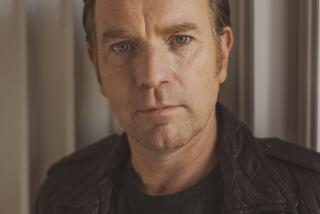Soviets Bolster Bridges to Western Europe
- Share via
MOSCOW — More than anything else, a 20-year span between visits to Moscow, first by President Charles de Gaulle and now by President Francois Mitterrand, demonstrates the validity of the French cliche, “Plus ca change, plus c’est la meme chose”-- the more things change, the more they stay the same.
Of course things have changed--how could they not, across 20 years of the Space Age, 40 years after World War II? This reporter now sees a city much less gray, with new buildings of less Stalinist architectural design. There are genuine traffic jams, the people are better dressed and living standards have obviously improved.
But how much things remain the same: the echelons of security men making relentless identity checks at every hotel entrance; the endless queues of people waiting--for anything and everything; the smells of Moscow in the elevators and restaurants; the sense of immobility and immutability of the Soviet system.
Even the political agenda for the Mitterrand visit seemed to prove that after 20 years, the more things change the more they remain the same. When De Gaulle arrived in Moscow at the end of June, 1966, he had just cut all French military links with the North Atlantic Treaty Organization and announced that he was kicking Supreme Allied Headquarters out of suburban Paris. He was riding high, preaching a doctrine of European detente from the Atlantic to the Urals, of French independence and grandeur and dissolution of the power blocs.
Since then, there have been 14 Franco-Soviet summits. Presidents Georges Pompidou, Valery Giscard d’Estaing and now Francois Mitterrand have all worked assiduously to cultivate at least the illusion of a special relationship with Moscow. But after 20 years of this, it is difficult to gauge what influence, if any, France has ever really had on Soviet policies or actions. Influence in the relationship may in fact be flowing the other way.
But there is one fundamental and perhaps decisively important difference between this Mitterrand visit and De Gaulle’s visit: Mitterrand and Mikhail S. Gorbachev talked alone, one-to-one, with only interpreters present, for more than six hours. In fact, when Mitterrand proposed that they should include foreign ministers at one of their sessions, Gorbachev said no, he would prefer that they talk alone.
De Gaulle’s meetings with Leonid I. Brezhnev in 1966 were really meetings of the French delegation with the Kremlin leadership. And so it has been, not only in French-Soviet meetings for the last 20 years, but also for all the other visiting heads of state, including Presidents Richard M. Nixon, Gerald R. Ford and Jimmy Carter. Gorbachev, of course, showed his preference for one-to-one discussions when he met President Reagan in Geneva last November.
The emergence of a younger Soviet leader who wants to talk--and listen--on his own with other heads of government from the West cannot be anything but a positive and hopeful change in a situation that otherwise remains stubbornly the same.
The Mitterrand visit took place, of course, with superpower relations in effect temporarily “on hold” while Gorbachev awaited a detailed reply from Reagan to Soviet proposals for a new agreement on nuclear arms. The visit leaves the French in no doubt of Gorbachev’s genuine wish for some kind of nuclear accord with the United States--and just as convinced that Reagan must and should pay for this with some sort of curb on his Strategic Defense Initiative, or “Star Wars,” program.
But while the Soviets were waiting, the Mitterrand visit also became part of a Soviet diplomatic offensive all across Europe.
The aim of this campaign under Gorbachev’s leadership is not any crude business of trying overtly to split European nations from the United States. It is a more subtle approach, simply establishing an atmosphere of good bilateral working relationships with the states of Western Europe.
Spanish Premier Felipe Gonzales was here two months before Mitterrand, and the Turkish premier will be here before the end of the month. The Soviet foreign minister has visited London last week and invited Prime Minister Margaret Thatcher to come to Moscow. The West German foreign minister will be in Moscow in two weeks.
New Soviet ambassadors, younger men who will perform in the Gorbachev style rather than the style of former Foreign Minister Andrei A. Gromyko, have been assigned to capitals of Western Europe. The Soviet Union also is at last making overtures establish direct diplomatic relations with the Commission of the European Communities in Brussels.
In effect, what Soviet diplomacy is saying to U.S. allies in the North Atlantic Treaty Organization is this: If we cannot reach agreement with the Reagan Administration, that is no reason why we cannot have calm and easy relations with each other in Europe.
Things are changing, even if they still remain the same.
More to Read
Sign up for Essential California
The most important California stories and recommendations in your inbox every morning.
You may occasionally receive promotional content from the Los Angeles Times.













